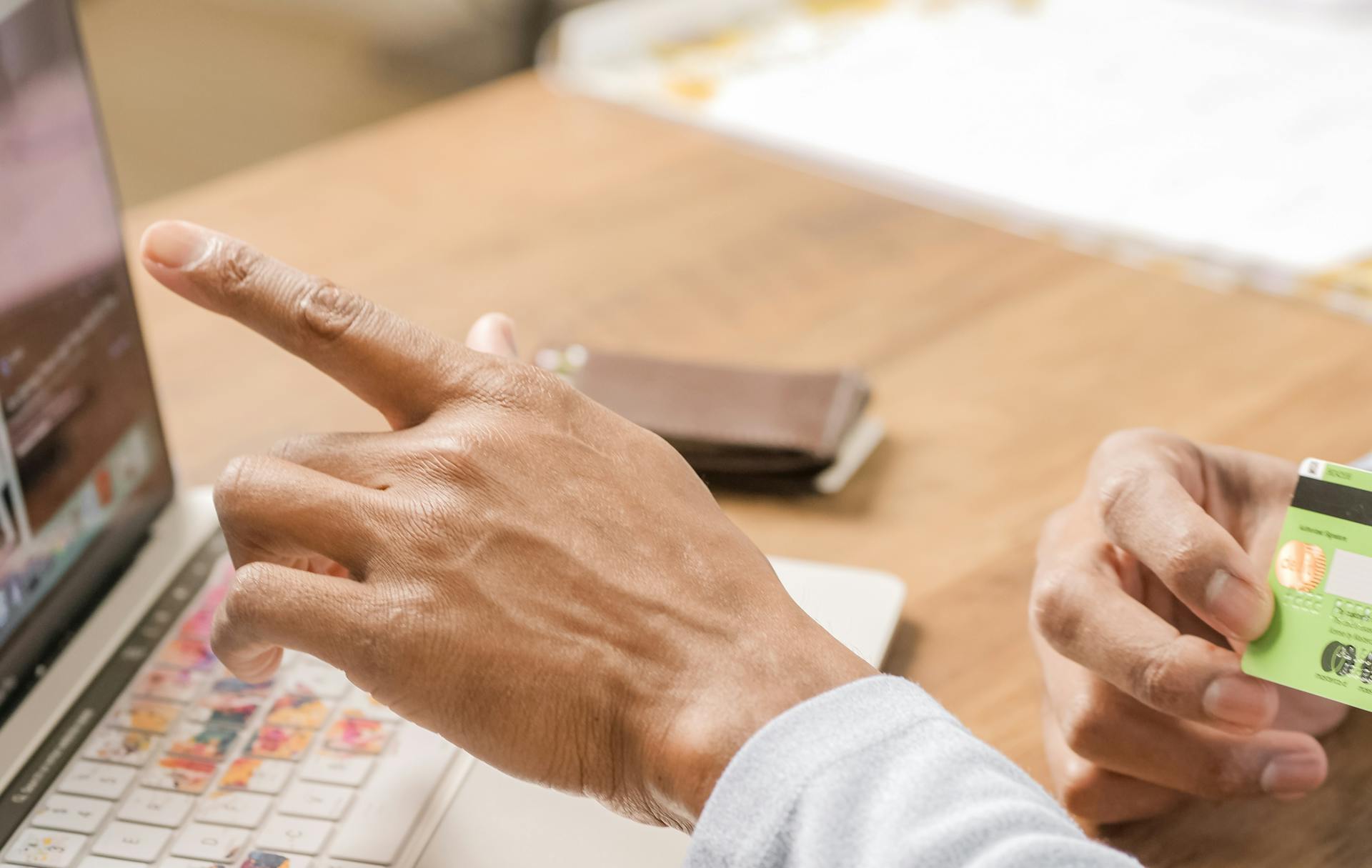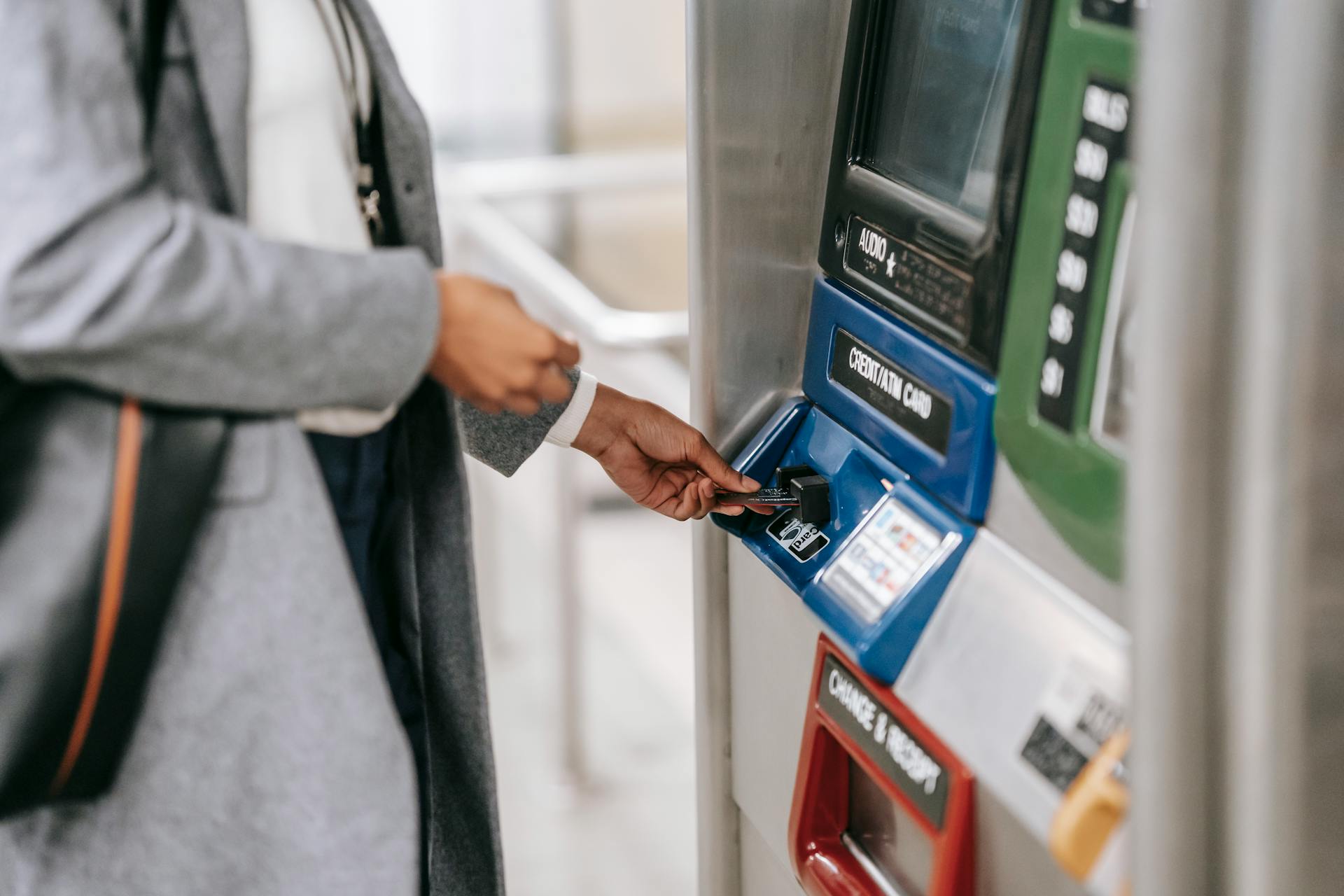
As a Citibank customer, you're likely familiar with the convenience of online banking and email notifications from Citicards. However, with great convenience comes great responsibility - protecting your personal and financial information.
To start, make sure you're using the official Citibank website (citicards.com) and mobile app to access your account information. This will help you avoid phishing scams and malware that can compromise your data.
Always be cautious of emails that ask you to verify or update your account information. Citibank will never ask you to provide sensitive information via email, and you should never click on suspicious links or download attachments from unfamiliar senders.
Citicards has a robust security system in place, including two-factor authentication (2FA) and encryption to protect your data.
Identifying Legitimate Emails
If you're not sure if an email from Citicards is legitimate, be cautious. Scammers are getting more sophisticated in their phishing tactics.
To spot a fake Citicards email, check the sender's email address. Legitimate emails come from @citibank.com or @citi.com, not from domains like @citi.gold-wealth.com.
Suggestion: Citicards Com Special Offers
The Federal Trade Commission (FTC) warns that falling for phishing scams can have devastating consequences. This includes having your account and identity stolen.
Here are some red flags to watch out for:
- Emails that ask you to reveal your login credentials or sensitive information.
- Emails that contain spelling or grammar errors.
- Emails that create a sense of urgency or panic.
- Emails that don't address you by your name.
Remember, it's always better to err on the side of caution. If you're unsure about the legitimacy of an email, don't respond or click on any links.
Account Security and Support
To keep your Citibank account safe, use unique and secure passwords for every account, and avoid storing them anywhere except in a password manager. Consider using a password manager to keep track of your passwords.
Enable two-factor or multifactor authentication on your Citibank account to add an extra layer of security. This can be done through the Citi Mobile App by going to Profile > App & Security.
Never reveal your passwords, PINs, or one-time use codes to anyone, and consider adding a security word and security questions to your Citibank account. You can also sign in with facial and fingerprint authentication through the Citi Mobile App.
Readers also liked: Cash App Square Email
Always check that emails and other communications come from official channels, such as @citibank.com or @citi.com, or from actual people. Be cautious of emails that ask you to reveal sensitive information.
For added protection, you can subscribe to an identity protection service like Aura, which offers features such as three-bureau credit monitoring, Safe Browsing tools, and bank and transaction monitoring.
Here is a list of phone numbers for Citi NRI customer care:
– Pre account opening 1-866-703-2462 (Toll-free)Europe– UK: 0800 032 2484 (Toll-free)
– Europe: 00-800-2484 2484 (Toll-free)
– Pre account opening: 0808 101 7384 (Toll-free)Hong Kong800-908-413 (Toll-free)India+91 22 4955 2484Singapore– 1-800-225-7211 (Toll-free)Thailand001-800-65-6196UAE– Post account opening 800-035703463USA– 1-800-248-4674
Email: [email protected] for pre-account opening queries
Account Suspended - Verify Personal Info
If you receive an email claiming your Citibank account is suspended, don't click on any links without verifying the authenticity of the email.
Always check the status of your accounts directly by logging in to your Citibank account or calling the number on the back of your card. Never click on links in emails or text messages.
To spot a fake Citibank email, make sure any link you click on takes you to the official "Citi.com" website. Hover over links to reveal the full URL, and ensure they're actually Citi links.
If an email leaves out the information about why your account is suspended, it's a red flag indicating that you're dealing with scammers.
Here's how to verify your account information safely:
- Log in to your Citibank account directly
- Call the number on the back of your card
- Verify the authenticity of the email before clicking on any links
By following these simple steps, you can protect yourself from Citibank phishing scams and keep your account safe.
Customer Support
You can contact Citibank's customer support team through various channels, including phone, email, and online chat.
To reach the Citibank 24*7 customer care number, dial 1860 210 2484, which is available to all customers across India. Calls are charged based on local telephone rates.
You can also reach out to Citibank's customer support team by sending an email through your internet banking account. Once you log in, you can find the compose mail option under the Quick Links menu.
If you're an NRI customer, you can get in touch with Citibank's NRI customer care team by calling the number specific to your country. The numbers are listed below.
– Pre account opening 1-866-703-2462 (Toll-free)Europe– UK: 0800 032 2484 (Toll-free)
– Europe: 00-800-2484 2484 (Toll-free)
– Pre account opening: 0808 101 7384 (Toll-free)Hong Kong800-908-413 (Toll-free)India+91 22 4955 2484Singapore– 1-800-225-7211 (Toll-free)Thailand001-800-65-6196UAE– Post account opening 800-035703463USA– 1-800-248-4674
Email: [email protected] for pre-account opening queries
To expedite your wait time when calling Citibank's customer support, have your credit card number, reason for calling, and account security code ready.
Protecting Your Bank Account
Use secure and unique passwords for every account, avoiding storage in insecure places like notes or browser autofill. This is crucial to prevent unauthorized access to your Citibank account.
Enable two-factor (2FA) or multifactor authentication (MFA) on your accounts to add an extra layer of security. This way, even if someone gets your password, they won't be able to access your account.
Never reveal passwords, PINs, or one-time use codes (OTPs) to anyone, including Citibank representatives. This includes security questions and a security word, which you can set up in your Citibank account.
Sign in to your Citi accounts with facial and fingerprint authentication for added security. You can do this by going to your Citi Mobile App and then to Profile > App & Security on your iPhone or Android device.
Always check that emails and other communications come from official channels, such as @citibank.com or @citi.com. Be wary of emails that ask for sensitive information or prompt you to click on suspicious links.
Here are some key measures to protect your Citibank account:
- Use secure and unique passwords
- Enable 2FA or MFA
- Never reveal sensitive information
- Use facial and fingerprint authentication
- Verify official channels
Link Interaction and Safety
If you clicked on a link in a fake Citibank email or opened a phishing email, you need to act quickly. Contact Citibank via its Security Center, and representatives will help you determine next steps, likely canceling any compromised cards and issuing new ones.
You can reach Citibank at 1-800-950-5114 for credit card fraud or 1-888-248-4226 for debit card fraud.
Report the phishing email by sending it to [email protected] as an attachment, not by forwarding it directly. This helps Citibank properly investigate the incident.
Delete the suspicious email from your inbox after sending it to Citibank.
Frequently Asked Questions
How can I send email to Citibank?
To contact Citibank via email, send your query to [email protected]. This email address is for concerns about closed accounts, credit cards, and loans not transferred to Axis Bank.
What is the Citibank email format?
Citi's email format is typically [email protected], used 85% of the time, with other variations including [email protected] and [email protected]. This format is commonly used by contacts within the company.
Sources
- https://www.aura.com/learn/citibank-phishing-email
- https://www.creditmantri.com/citibank-customer-care/
- https://cardinsider.com/citibank/credit-card-customer-care-number-email-id/
- https://sbnri.com/blog/nri-bank-accounts/citibank-nri-customer-services
- https://www.cnbc.com/select/citi-coronavirus-assistance/
Featured Images: pexels.com


